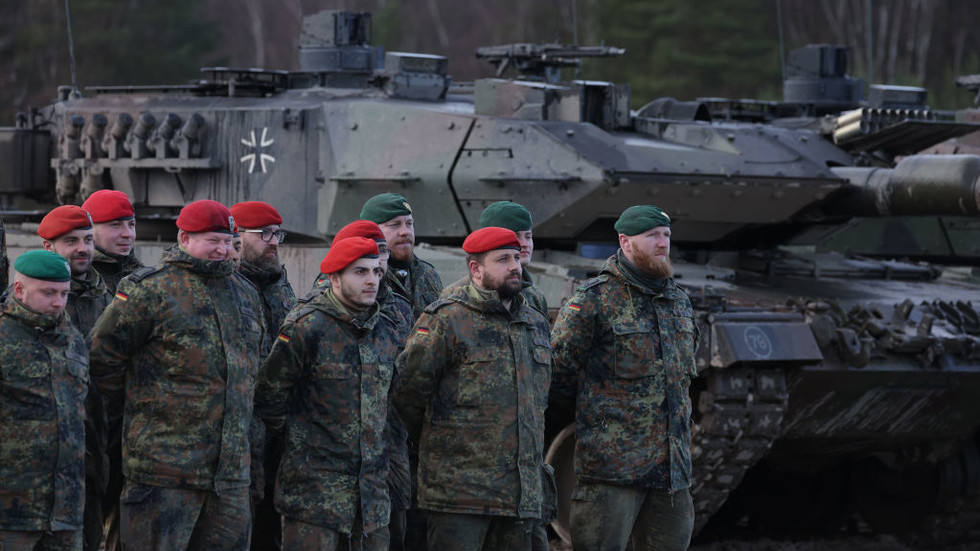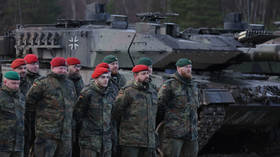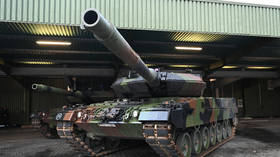
Chronic underfunding and the country’s support for Ukraine are among the reasons, the media outlet reports

FILE PHOTO. Members of the Bundeswehr’s 9th Panzer Training Brigade stand next to new Leopard 2 A7V heavy battle tanks they received during a visit by Defence Minister Christine Lambrecht to the Bundeswehr Army training grounds on February 07, 2022 in Munster, Germany. © Sean Gallup/Getty Images
Germany is failing to live up to its NATO commitments both in terms of personnel and equipment it can provide for the military bloc’s defense, Bild has reported. The media outlet, citing an internal appraisal by the nation’s Armed Forces, the Bundeswehr, claimed that a lack of funding, as well as Berlin’s military aid to Kiev, are among the reasons for the current state of affairs.
The report published on Tuesday claims to be based on a 14-page analysis sent by Inspector of the Army Alfons Mais to Inspector General of the Bundeswehr Carsten Breuer in early March.
The combat readiness of the division which Germany pledged to put at NATO’s disposal by 2025 will only be “limited,” Bild said.
For instance, a tank division which is expected to make up part of the new unit is said to have faced a staff shortage of 21% last month.
On top of that, the division lacks the necessary equipment, which “will not be sufficiently available in the foreseeable future,” the outlet said, citing Inspector Mais.

He reportedly warned that even if the German military leadership transferred hardware from existing units, the new division would still not likely be prepared in terms of equipment by 2025.
The alleged memo also claims that the problem is not confined to that unit, but is widespread in the military. To make matters worse, the supposed prioritization of Berlin’s obligations to NATO means that the needs of the rest of the Bundeswehr must take a back seat, according to the report.
Bild quoted Mais as saying that “despite all efforts, the division will only be able to produce a limited combat readiness in 2025.”
According to the outlet, “continued underfunding” and the military aid provided to Ukraine in the form of equipment and training were cited in the memo as aggravating the situation.
In late February, German Defense Minister Boris Pistorius acknowledged that Berlin does not have “armed forces that are capable of defending [the country], that is, capable of defending against an offensive, brutally waged aggressive war.”
The official described the Bundeswehr at the time as understaffed and underequipped.
Around the same time, the head of the German Armed Forces Association (DBwV), Colonel Andre Wustner, warned that the military was facing shortages of essential hardware as a result of the weapon shipments to Ukraine.
“To date, we haven’t received a replacement for a single self-propelled howitzer that we handed over to Ukraine last year,” he said, adding that a considerable number of tanks in the German military were not operational.




